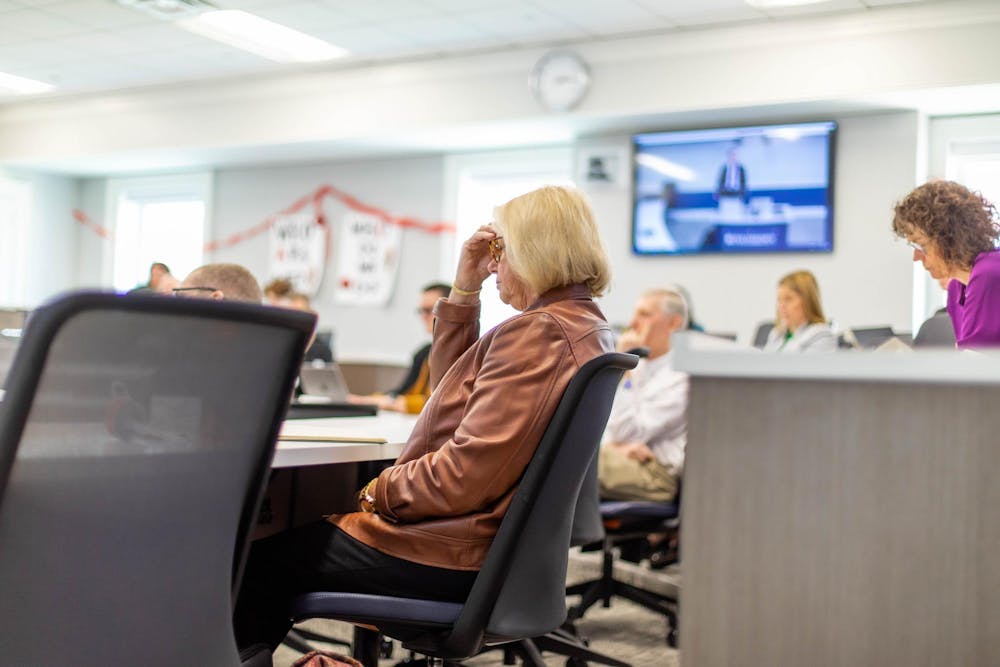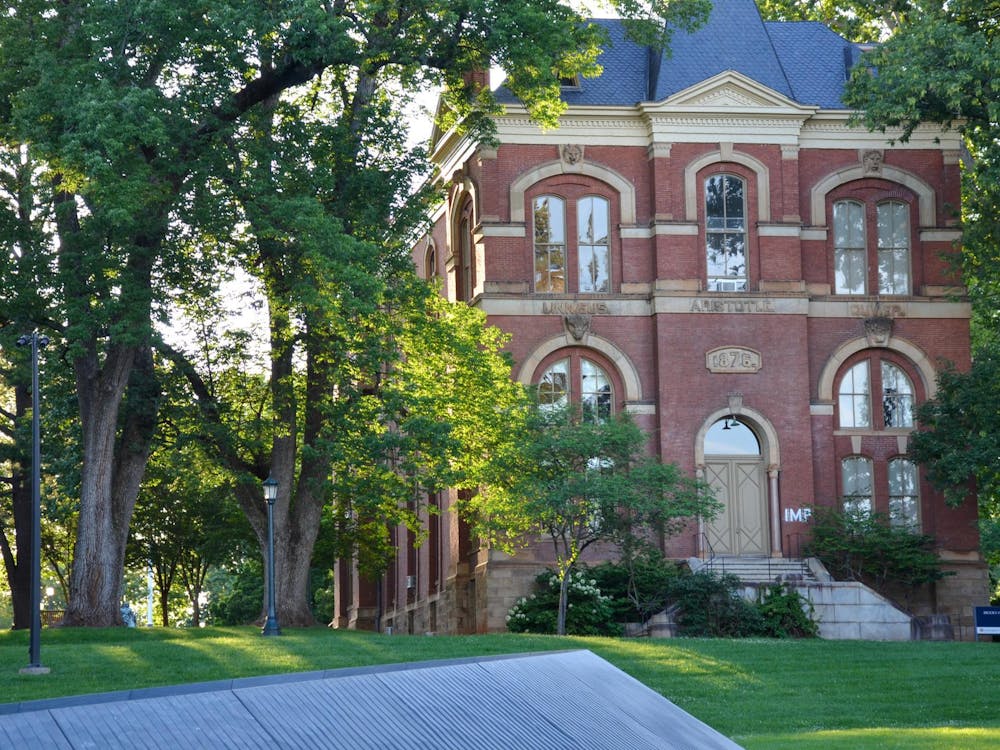Faculty members across the University expressed their shock and concern after the resignation of University President Jim Ryan last Friday, pressured by Trump’s Department of Justice. At the time of publication, around 160 faculty members have signed an open letter condemning political interference and urging the Board of Visitors, the University’s highest governing body, to resist pressure from the federal government.
“The forced installation of a new president under these circumstances would impede the exchange of ideas, set a dangerous precedent for the destruction of academic freedom, and cast a shadow on the integrity of the research and teaching conducted at the university,” the faculty wrote.
Jeri Seidman, chair of the Faculty Senate and associate professor of Commerce, signed the faculty’s open letter and said that a small percentage of individuals and alumni were quietly pushing for Ryan’s resignation, but she never expected it would come to fruition.
“Faculty come to U.Va. not because it pays the most. Faculty come to U.Va. because they believe in the mission,” Seidman said. “Faculty who do excellent research and provide excellent teaching, and who came to this place because they believed in that mission, are going to begin to look elsewhere.”
In response to the resignation, Seidman said that the Faculty Senate Executive Council held an emergency meeting last Friday where it drafted and passed a resolution condemning the demands of the DOJ that led to Ryan’s resignation.
The resolution also affirmed the faculty’s support for Ryan and his leadership as president. Seidman now hopes to be in communication with the Board during the search for a new president and wants them to understand the serious harm that she feels Ryan’s resignation has done to the University’s reputation.
The Virginia Conference of the American Association of University Professors also sent its own letter to outgoing Board Rector Robert Hardie and incoming Rector Rachel Sheridan denouncing the Trump administration's pressure campaign to remove Ryan.
The letter from the AAUP calls for greater transparency from the Board and supports recent actions from the Faculty Senate, ordering Sheridan to authorize an independent investigation of the circumstances surrounding Ryan’s departure.
Seidman expressed shock at Ryan’s announcement and called for an explanation on the current state of affairs at the University and for greater transparency from the Board.
“I think we're at a critical moment right now because faculty governance and shared governance requires there to be transparency,” Seidman said. “We need to have all the information, and we need to be involved in the decision making going forward in terms of who is the interim president and making sure that the search for our next permanent president includes all of the voices.”
Hardie and Sheridan announced that Chief Operating Office J.J. Davis would serve as acting president while the Board finds an interim. Once an interim president is appointed, the Board then forms a committee to search for a new president.
Asst. Biology Prof. Nicholas Landry, who has been a part of the faculty for less than a year, discussed his initial shock and sadness at Ryan’s resignation, saying Ryan had made everyone feel welcome by opening up his Carr’s Hill home. He noted how he was signing letters defending Ryan, but that his resignation was announced before the letters were finalized.
“I'm a new arrival to the University…I've been at three universities prior, and when I got to U.Va., it was the first time I'd ever been inside a president's house,” Landry said. “I just was so grateful for the opportunity to be part of that community…President Ryan seemed to really engage with the students and faculty.”
Assoc. Politics Prof. Denise Walsh was less surprised by the announcement and said she had expected Ryan to have been forced out earlier in the year by the Department of Justice. She cited Trump administration actions against diversity, equity and inclusion programs as being central to Ryan’s resignation.
“This is a government that's blackmailing its academic institutions to end DEI to force a president's resignation,” Walsh said.
The Board recently voted to dissolve the DEI office this March, but the DOJ opened an investigation into the University for not fully removing DEI programs and initiatives. According to Walsh, this investigation and Ryan’s resulting resignation have limited academic freedom and have given the Trump administration more power against American universities.
Walsh said that while DEI was not a wholly sufficient option, she found the moves concerning and counterproductive.
“This ultra-right government is attacking DEI in a way to create many distractions, to create an enemy list, as opposed to really listening to the cares and importance and being responsive to citizens in the country,” Walsh said.
While all of the faculty spoken to were disappointed by the news, several faculty members who chose to remain anonymous said they wished Ryan had done more to combat the Trump administration and remained in his position despite pressure from the federal government. They also hoped Ryan had independently taken a more critical and outspoken role against President Donald Trump’s cuts to higher education and academic research.
Ryan did sign a collective statement condemning the Trump Administration for its recent actions against federal research funding. He was joined by more than 150 university presidents.
Prof. Erik Linstrum, who signed the open letter, blames the Trump administration and the DOJ for trying to unduly influence academic policy and teaching at the University against the will of the faculty and administration.
“I think we've seen this playbook before. We've seen it at Columbia [University]. We've seen it at Harvard [University],” Linstrum said. “The Trump administration is trying to use, or I would say, abuse, the power of the federal government to impose an ideological agenda on universities.”
Linstrum said he was especially worried about the Trump administration’s actions against federal research funding and academic freedom not only at the University, but also across higher education as a whole. He noted that the autonomy of universities across the country is at threat, expressing the danger of the moment.
He also discussed his dismay with the current members of the Board, accusing them of lacking independence and having close ties to Gov. Glenn Youngkin. He outlined the difficult position the Board could find itself in when searching for a replacement to Ryan.
“I think whoever is chosen by this Board under these circumstances is going to be under a cloud, and it's going to cast a shadow on everything that the University does going forward,” Linstrum said.
The majority of the current Board was appointed by Youngkin and will be completely chosen by him by the time his term ends in January 2026. According to Seidman, it will be their responsibility to decide on an interim and permanent University president in the coming months.







